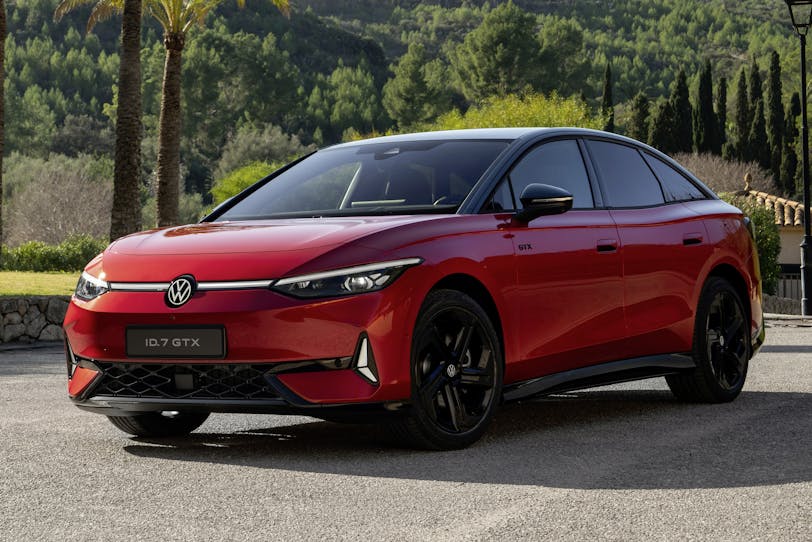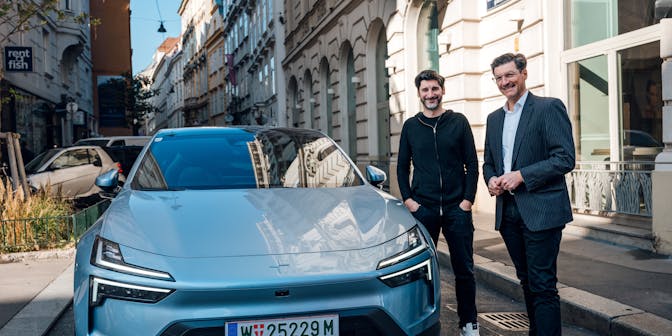Maximising Savings with EV Salary Sacrifice
In the evolving world of employee benefits, EV Salary Sacrifice stands out. It's a scheme that's gaining traction, offering both financial and environmental advantages.
But what exactly is EV Salary Sacrifice? It's a scheme where employees forgo a portion of their pre-tax salary in exchange for an electric vehicle. This innovative approach to car ownership can lead to significant savings for employees.
For employers, it's a compelling addition to the benefits package. It can enhance the company's green credentials and contribute to corporate social responsibility initiatives.
This article aims to provide a comprehensive guide to EV Salary Sacrifice. We'll delve into how it works, the benefits it offers, and how to maximize savings through this scheme.
Whether you're an HR professional, a decision-maker in a company, or an employee interested in sustainable commuting options, this guide is for you. Let's explore the potential of EV Salary Sacrifice together.
Understanding EV Salary Sacrifice
EV Salary Sacrifice is a unique approach to car ownership. It's a scheme where employees agree to sacrifice a portion of their pre-tax salary. In return, they receive an electric vehicle for personal use.
This scheme is a type of salary packaging or salary sacrifice arrangement. It's a legal and government-approved way to reduce taxable income, leading to financial benefits for employees.
But it's not just about the money. Choosing an electric vehicle over a traditional combustion engine car has environmental benefits too. It's a step towards reducing carbon emissions and promoting sustainable commuting.
Here are some key aspects of EV Salary Sacrifice:
- It's a voluntary agreement between an employer and an employee.
- The sacrificed salary is pre-tax, reducing the employee's taxable income.
- The employee receives an electric vehicle in return.
- The scheme can lead to significant tax savings.
- It promotes the use of environmentally friendly electric vehicles.
The Benefits for Employees
For employees, the EV Salary Sacrifice scheme offers several benefits. The most obvious one is the financial advantage. By sacrificing a portion of their pre-tax salary, employees can reduce their taxable income.
This leads to lower income tax payments. In essence, employees can drive an electric vehicle at a reduced cost compared to buying one outright.

But the benefits don't stop at tax savings. Electric vehicles have lower running costs compared to traditional cars. They require less maintenance, and the cost of electricity is generally lower than petrol or diesel.
Moreover, driving an electric vehicle is a step towards a more sustainable lifestyle. It's a chance to contribute to environmental conservation efforts and reduce carbon footprint.
The Advantages for Employers
For employers, offering an EV Salary Sacrifice scheme can be a strategic move. It's a unique employee incentive that can enhance the company's benefits package.
It can help attract and retain talent in a competitive job market. Employees value benefits that offer tangible savings and contribute to their wellbeing.
Moreover, an EV Salary Sacrifice scheme aligns with corporate social responsibility initiatives. It's a way for companies to demonstrate their commitment to sustainability and environmental conservation.
Finally, there can be tax advantages for employers too. Depending on the jurisdiction, employers may be able to claim tax deductions or credits related to the scheme.
How EV Salary Sacrifice Works
The EV Salary Sacrifice scheme is a simple concept. An employee agrees to give up a portion of their pre-tax salary. In return, they receive an electric vehicle for personal use.
The sacrificed salary is taken from the employee's pre-tax income. This reduces the employee's taxable income, leading to lower income tax payments. The employee then pays for the electric vehicle from their reduced salary.
The employer leases the electric vehicle on behalf of the employee. The lease cost, including maintenance and insurance, is covered by the sacrificed salary.
Setting Up a Scheme in Your Organisation
Setting up an EV Salary Sacrifice scheme requires careful planning. The first step is to understand the legal and tax implications. It's advisable to seek professional advice to ensure compliance with all regulations.
Next, the employer needs to select a reputable leasing company., just like DriveElectric The leasing company will provide the electric vehicles and manage the lease agreements. The employer then sets up the salary sacrifice arrangements with the employees.
Finally, the employer needs to communicate the scheme to the employees. Clear communication is crucial to ensure employees understand the benefits and implications of the scheme.
Choosing the Right Electric Vehicle
Choosing the right electric vehicle is a crucial part of the EV Salary Sacrifice scheme. The choice of vehicle will impact the cost-effectiveness of the scheme.
Employees should consider factors such as the vehicle's range, charging infrastructure, and maintenance costs. The vehicle's residual value at the end of the lease period is also an important consideration.
It's also important to consider personal needs and lifestyle. For example, a family might need a larger vehicle, while a city dweller might prefer a compact car for easy parking.
Maximising the Savings
The key to maximising savings with EV Salary Sacrifice is understanding the financial implications. Both employees and employers can benefit financially from the scheme.
For employees, the savings come from reduced income tax and National Insurance contributions. For employers, the savings come from lower National Insurance contributions and potential corporate tax benefits.
For Employees: Tax Savings and Beyond
Employees can save significantly on income tax and National Insurance contributions through EV Salary Sacrifice. The exact savings depend on the employee's tax bracket and the cost of the electric vehicle.
Beyond tax savings, employees can also benefit from lower running costs. Electric vehicles typically have lower fuel and maintenance costs compared to combustion engine cars.
For Employers: CSR and Employee Retention
For employers, EV Salary Sacrifice can contribute to Corporate Social Responsibility (CSR) goals. By promoting the use of electric vehicles, companies can reduce their carbon footprint and demonstrate their commitment to sustainability.
Additionally, EV Salary Sacrifice can be a powerful tool for employee retention and recruitment. It's an attractive benefit that can help companies attract and retain top talent.
Common Questions About EV Salary Sacrifice
When considering EV Salary Sacrifice, employees often have questions. These can range from the financial implications to the practicalities of driving an electric vehicle.
Here are some common questions:
- How much can I save with EV Salary Sacrifice?
- What happens if I leave the company?
- How does the scheme affect my pension contributions?
- What types of electric vehicles are available?
Addressing Employee Concerns
Addressing these concerns is crucial for the success of an EV Salary Sacrifice scheme. Clear communication and transparency are key.
Employers should provide detailed information about the scheme. This includes potential savings, the range of available vehicles, and the terms and conditions of the agreement.
Conclusion: The Future of EV Salary Sacrifice
As electric vehicle technology advances, EV Salary Sacrifice schemes are likely to become more popular. They offer a win-win solution for employers and employees alike.
With the right approach, these schemes can contribute to sustainability goals, employee satisfaction, and financial savings. The future of EV Salary Sacrifice looks promising indeed.
Speak to our Salary Sacrifice consultants
Thanks for your enquiry. One of the DriveElectric team will be in touch asap.
If you need to speak with someone urgently then please call 01628 899 727.
(Our office hours are Mon-Fri 8.30am-5.30pm)
More EV guides
Understanding Vehicle Excise Duty (VED) or "Road Tax" for EVs

How to save money on a new car with Salary Sacrifice
How is salary sacrifice calculated?
